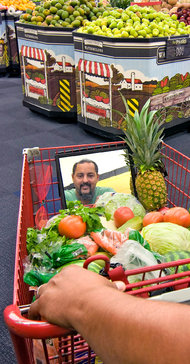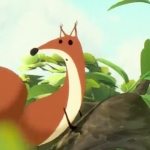
Nudging us to Eat Better. Michael Moss writes in The New York Times about efforts designed to “nudge” shoppers to buy more fruit and vegetables. In a Virginia grocery, for example, “grocery carts carried a strip of yellow duct tape that divided the baskets neatly in half; a flier instructed shoppers to put their fruits and vegetables in the front half of the cart. Average produce sales per customer jumped to $8.85 from $3.99.”
One of the more jarring ideas was to place a mirror in front of the cart so that the shoppers see themselves while shopping. “I’m looking at myself, and thinking, ‘O.K., now what?’ ” Moss quotes one shopper. “The mirror is part of an effort to get Americans to change their eating habits, by two social scientists outmaneuvering the processed-food giants on their own turf, using their own tricks: the distracting little nudges and cues that confront a supermarket shopper at every turn,” he says.
 Here’s the book Nudge that much of this research is based on.
Here’s the book Nudge that much of this research is based on.
We Don’t Farm Like This is a controversial World Wildlife Canada video drawing attention to poor fishing practices. You can apparently only see it here. Read about the controversy here at Saving Seafood.
“It is not naïve or a cliché to say that the creative mind holds the answers to all the world’s problems. It is merely a fact. And so, you should balance your desire to use your creativity with a sense of responsibility. Please take yourself and your creative pursuits seriously.
“Your ideas must be treated with respect because their importance truly does extend beyond your own interests. Every living person benefits from a world that is enriched with ideas made whole—ideas that are made to happen through your passion, commitment, self-awareness, and informed pursuit.” Scott Belsky, Making Ideas Happen

No comments yet.